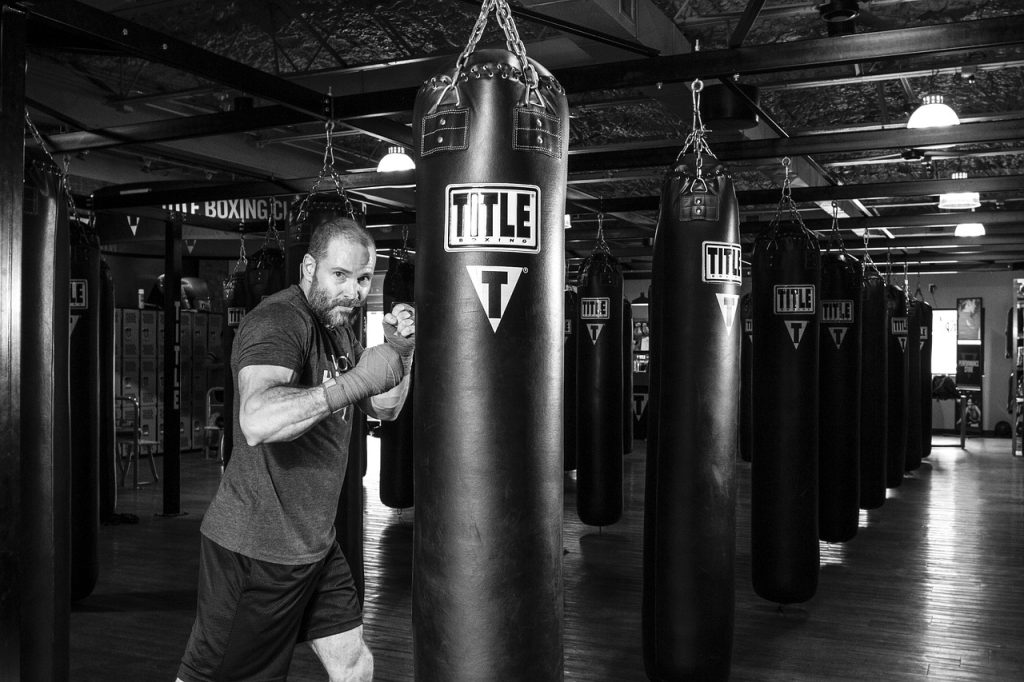If you’re looking for a new way to challenge yourself both physically and mentally, boxing might just be the perfect choice for you. Many people wonder if boxing is a good option for beginners, and the answer is a resounding yes. With its combination of strength, agility, and strategy, boxing offers a comprehensive workout that not only helps you improve your fitness but also builds confidence and discipline. Whether you’re a complete novice or have some prior experience, boxing can provide a unique and rewarding journey that will leave you feeling stronger and more empowered than ever before.
Table of Contents
ToggleBenefits of Boxing for Beginners
Physical Fitness
Boxing is an excellent form of exercise for beginners looking to improve their physical fitness. It offers a full-body workout that engages multiple muscle groups simultaneously. Through boxing training, you can enhance your strength, endurance, and cardiovascular fitness. The various boxing drills, such as punching, footwork, and defensive maneuvers, require you to exert energy and push your physical limits. As a result, regular boxing sessions will contribute to better overall fitness and help you achieve your fitness goals.
Self-Defense Skills
One of the key benefits of boxing for beginners is the opportunity to acquire valuable self-defense skills. Learning how to punch effectively, dodge incoming strikes, and move fluidly can greatly enhance your ability to protect yourself in challenging situations. Boxing training will teach you not only the physical techniques but also the mental preparedness required in self-defense scenarios. It can increase your confidence and provide a sense of empowerment knowing that you have the skills to defend yourself if needed.
Improved Coordination
Another advantage of boxing for beginners is the improvement in coordination. Boxing requires a high level of coordination between different parts of the body, including the arms, legs, and core. The footwork drills, combined with precise punching techniques, demand a synchronized movement of the entire body. Regular boxing practice will enhance your hand-eye coordination, balance, and agility, making you more adept in various physical activities both inside and outside the boxing ring.
Stress Relief
Boxing can be an excellent way for beginners to relieve stress and improve their overall mental well-being. Engaging in a physical activity like boxing helps release endorphins, the body’s natural mood-elevating chemicals, which can elevate your mood and reduce feelings of stress and anxiety. Additionally, boxing provides a way to channel your frustrations and negative emotions into a positive and constructive outlet. The intense physical demands of boxing also help improve sleep quality, promoting overall mental rejuvenation.
Potential Drawbacks of Boxing for Beginners
Risk of Injury
While boxing offers numerous benefits, it’s important for beginners to be aware of the potential risk of injury associated with the sport. The nature of boxing, which involves physical contact and repetitive movements, can put strain on various parts of the body, particularly the hands, wrists, and shoulders. Beginners should ensure they receive proper training and adhere to safety guidelines to minimize the risk of injury. It is crucial to learn and practice proper technique, use appropriate protective gear, and gradually increase the intensity of training to avoid unnecessary strain.
Intense Physical Demands
Another potential drawback for beginners is the intense physical demands that boxing training places on the body. Boxing requires strength, endurance, and flexibility, which may take time to develop. Beginners may initially struggle with the high-intensity workouts and muscle soreness. However, with consistency and gradual progression, your body will adapt and become more capable. It’s important to listen to your body, rest when needed, and gradually increase the duration and intensity of training to avoid burnout and overexertion.
Mental and Emotional Challenges
Boxing is not just physically demanding but can also be mentally and emotionally challenging for beginners. It requires focus, concentration, and discipline to master the techniques and consistently improve. There may be moments of frustration and self-doubt as you navigate the learning process. However, overcoming these mental and emotional challenges can significantly contribute to personal growth and resilience. With the right mindset, boxing can serve as a platform to develop mental toughness, perseverance, and a strong sense of self-confidence.
Choosing a Boxing Gym
Location and Facilities
When selecting a boxing gym as a beginner, consider the location and facilities offered. Choose a gym that is conveniently located and easily accessible to ensure you can commit to regular training sessions. Look for a clean and well-maintained facility with proper equipment and boxing-specific training areas. A suitable gym should have adequate space, punching bags, boxing rings, and other necessary amenities to support your training needs.
Qualified Coaches
One of the most crucial factors in choosing a boxing gym is the presence of qualified coaches. A good coach will have the necessary experience and knowledge to guide beginners effectively. They should be able to provide clear instruction, teach proper technique, and offer constructive feedback to help you improve. Look for coaches who are certified by reputable boxing associations or have a proven track record in coaching novice boxers.
Appropriate Training Gear
A well-equipped boxing gym should provide or require appropriate training gear for beginners. This includes hand wraps, gloves, mouthguards, and protective headgear. Before joining a gym, inquire about their gear policy and ensure they prioritize the safety and well-being of their members. Investing in high-quality gear and ensuring proper fit will not only protect you from potential injuries but also enhance your performance.
Positive Training Environment
The atmosphere and culture of a boxing gym play a significant role in a beginner’s experience. Look for a gym that fosters a positive and supportive training environment. Friendly and respectful interactions among members and coaches are important to create a welcoming space for beginners to learn and grow. Additionally, observe the gym’s commitment to maintaining a safe and inclusive environment free from discrimination or harassment.
Basic Boxing Techniques for Beginners
Stance and Footwork
A fundamental aspect of boxing for beginners is establishing the proper stance and footwork. The basic boxing stance involves standing with your feet shoulder-width apart, with your non-dominant foot slightly ahead of the other. The lead foot should be pointing towards the target, while the rear foot is angled slightly outward. This stance provides balance, stability, and enables efficient movement.
Proper footwork is essential for effective boxing. Beginners should learn the key footwork techniques, such as shuffling, pivoting, and circling. Shuffling involves small, quick steps to maneuver in different directions, while pivoting allows for changing angles and creating space. Practicing footwork drills regularly will develop agility and ensure smooth movement in the ring.
Punching Techniques
Learning the various punching techniques is crucial for beginners in boxing. The core punches include the jab, cross, hook, and uppercut. The jab is a quick, straight punch with your lead hand, while the cross is a powerful straight punch with your rear hand. The hook involves a curved punch delivered from the side, and the uppercut is an upward punch aimed at the opponent’s chin.
Proper technique is essential to maximize the effectiveness of punches while minimizing the risk of injury. Beginners should focus on the correct alignment of the body, wrist, and knuckles during each punch. Practicing punches with a coach or on a punching bag will help develop accuracy, speed, and power.
Defensive Maneuvers
In addition to offensive techniques, beginners should also learn defensive maneuvers to avoid getting hit. Important defensive techniques in boxing include slips, ducks, blocks, and parries. Slipping involves subtly moving the head to the side to avoid incoming punches. Ducks involve bending the knees and lowering the body to evade punches. Blocks and parries are used to deflect or redirect punches.
Learning defensive maneuvers requires anticipation, quick reflexes, and timing. Beginners should practice these techniques under the guidance of a coach to ensure proper execution and minimize the risk of injury. Incorporating defensive drills into training routines will enhance your overall boxing skills and make you a more well-rounded fighter.
Training Routines for Boxing Beginners
Warm-up Exercises
Before starting any boxing training session, it is essential to perform warm-up exercises to prepare the body for physical activity. Warm-ups should include a combination of cardiovascular exercises, dynamic stretches, and joint mobility exercises. Jumping jacks, high knees, and skipping rope are great cardio warm-up options. Dynamic stretches like arm circles, leg swings, and hip rotations help improve flexibility. Additionally, joint mobility exercises such as neck circles, wrist rotations, and ankle rotations will help increase the range of motion.
Shadowboxing and Bag Work
Shadowboxing is a valuable training technique for beginners that allows you to practice your boxing skills without a partner or equipment. It involves performing punches, footwork, and defensive maneuvers in front of a mirror or open space. Shadowboxing helps improve muscle memory, coordination, and technique. It also allows you to focus on your form and make any necessary corrections.
Bag work is another essential component of training for beginners. Working on punching bags allows you to practice punches with resistance. It helps develop power, accuracy, and endurance while also improving your timing and rhythm. Incorporating both shadowboxing and bag work into your training routine will enhance your overall boxing skills and conditioning.
Pad Work and Sparring
Once you have built a foundation of basic boxing techniques, incorporating pad work and sparring into your training routine can further enhance your skills. Pad work involves partnering with a coach or training partner who holds focus mitts or punching pads for you to practice combinations, speed, and accuracy. This form of training allows you to simulate real-life scenarios and refine your offensive and defensive skills.
Sparring, when done under proper guidance and supervision, provides an opportunity to apply your boxing techniques in a controlled environment. It allows for the development of timing, distance management, and the ability to react to an opponent’s movements. Sparring should only be undertaken once you have acquired a solid foundation in basic techniques and have developed a good level of physical and mental readiness.
Strength and Conditioning
To complement your boxing skills, incorporating strength and conditioning exercises into your training routine is essential. Developing strength and conditioning will improve power, speed, and overall physical performance. Exercises such as push-ups, squats, lunges, planks, and resistance training with weights or resistance bands are beneficial for building strength. Additionally, cardiovascular exercises like running, cycling, or HIIT (High-Intensity Interval Training) workouts are vital for improving endurance.
A well-rounded training routine that includes both boxing-specific exercises and strength and conditioning work will maximize your performance and help you achieve your optimal fitness level.
Tips for Getting Started as a Boxing Beginner
Setting Realistic Goals
As a boxing beginner, it’s important to set realistic goals to keep yourself motivated and focused. Start by identifying what you want to achieve in your boxing journey. Whether it’s improving your fitness, learning self-defense skills, or eventually competing in amateur competitions, having clear goals will provide you with direction and purpose. Break down your larger goals into smaller, achievable milestones to track your progress along the way.
Consistency and Discipline
Consistency and discipline are crucial when starting boxing as a beginner. Regularly attending training sessions and committing to a training schedule will ensure steady progress and improvement. It’s important to maintain a balance between pushing yourself and allowing for adequate rest and recovery. Develop a routine that works for you and commit to it, even when motivation may waver. Consistent effort and dedication will yield better results over time.
Gradual Progression
Avoid the temptation to rush your progress as a beginner boxer. It’s essential to allow yourself time to develop the necessary skills and techniques before moving on to more advanced training. Focus on mastering the basics and gradually progress to more complex drills and combinations. Building a strong foundation will set you up for success in the long run and minimize the risk of injury.
Listening to Your Body
While it’s important to push yourself during training, it’s equally important to listen to your body and prioritize your health and well-being. Pay attention to any signs of pain, fatigue, or discomfort and adjust your training accordingly. Rest when needed and seek guidance from coaches or healthcare professionals if you experience persistent or worsening symptoms. Taking care of your body will allow for optimal performance and prevent overuse injuries.
Common Mistakes to Avoid as a Boxing Beginner
Neglecting Proper Technique
One common mistake beginners make in boxing is neglecting proper technique in favor of speed or power. Without a solid foundation in technique, you may compromise your performance and increase the risk of injury. Focus on perfecting the fundamentals, including stance, footwork, and punches, before attempting to add more speed or power. Take the time to receive proper instruction and practice with attention to detail.
Overtraining
Overtraining is a common mistake that beginners, driven by enthusiasm, often fall into. While it’s important to train consistently, it’s equally important to allow for rest and recovery. Overtraining can lead to fatigue, burnout, and an increased risk of injury or illness. Incorporate rest days into your training schedule to give your body time to recuperate and adapt to the demands of boxing. Listen to your body and adjust the intensity and duration of training as needed.
Skipping Warm-ups and Cool-downs
Skipping warm-ups and cool-downs is another mistake that beginners may make, underestimating their importance. Warm-up exercises prepare your muscles and joints for the physical demands of boxing, reducing the risk of injury. Cool-down exercises, such as stretching, help prevent muscle stiffness and aid in recovery. Dedicate time to both warm-ups and cool-downs before and after each training session to optimize your performance and minimize post-workout soreness.
Safety Measures for Boxing Beginners
Wearing Protective Gear
Safety should be a top priority for beginners in boxing. Invest in proper protective gear, including hand wraps, gloves, mouthguards, and protective headgear. Hand wraps provide support to your wrists and knuckles, preventing injuries and minimizing the risk of sprains or fractures. Well-fitting gloves with sufficient padding protect your hands and minimize the impact on your opponent. Mouthguards protect your teeth and jaw from potential damage, while protective headgear reduces the risk of head and facial injuries during sparring or competitions.
Ensuring Proper Hydration
Proper hydration is crucial when engaging in any physical activity, including boxing. Dehydration can impair performance, lead to cramping, and increase the risk of overheating. Before, during, and after training sessions, make sure to drink an adequate amount of water to maintain hydration. It’s recommended to drink water before you feel thirsty to ensure sufficient fluid intake. Keeping a water bottle handy during training sessions will serve as a reminder to stay hydrated.
Learning about Injury Prevention
Educating yourself about injury prevention techniques and practices is essential for boxing beginners. Understanding how to protect yourself and avoid unnecessary injuries will help you have a safe and enjoyable boxing experience. Besides wearing protective gear and using proper technique, learning about cool-down exercises, injury rehabilitation, and prehabilitation can further reduce the risk of injuries. Stay informed by attending workshops, seminars, or consulting with coaches and healthcare professionals.
Mental Preparation for Boxing Beginners
Managing Fear and Anxiety
Boxing can be an intimidating sport for beginners, particularly when it comes to facing an opponent in the ring. Managing fear and anxiety is crucial for mental preparation. Recognize that experiencing fear and anxiety is normal and part of the learning process. Develop strategies to cope with these emotions, such as deep breathing, positive self-talk, and visualization. Set small, achievable goals to gradually build your confidence and overcome any mental barriers.
Building Confidence
Building confidence is key to success in boxing. Confidence allows you to perform at your best and make split-second decisions in the ring. Cultivate confidence by consistently practicing and honing your skills. Celebrate small victories and acknowledge your progress along the way. Surround yourself with a supportive network, including coaches and training partners, who can provide encouragement and constructive feedback. The more you train and witness your own growth, the more your confidence will naturally develop.
Developing Focus and Concentration
Boxing requires a high level of focus and concentration. Developing these mental skills will help you maintain awareness, react quickly, and execute your techniques effectively. Incorporate mindfulness techniques into your training routine to improve focus and concentration. Practice meditation or visualization exercises to enhance mental clarity and sharpen your ability to stay present in the moment. Eliminate distractions during training sessions and create a mental space dedicated to boxing.
Goals and Challenges for Boxing Beginners
Building Strength and Endurance
As a beginner in boxing, one of your primary goals will be to build strength and endurance. Boxing requires physical stamina and the ability to sustain your energy throughout a match or training session. By incorporating a combination of cardiovascular workouts, strength training, and boxing-specific drills, you can progressively increase your strength and endurance. Consistency and dedication are key to achieving this goal, as it takes time for your body to adapt and improve.
Learning Effective Defense
Learning effective defense is a significant challenge for beginners in boxing. Defense involves avoiding or minimizing incoming punches while maintaining your balance and position. It requires quick reflexes, spatial awareness, and the ability to read your opponent’s movements. By practicing defensive techniques such as slips, ducks, blocks, and parries, you can develop your defensive skills over time. Focus on anticipation, timing, and footwork to enhance your ability to evade punches effectively.
Participating in Amateur Competitions
For some beginners, an eventual goal in boxing may include participating in amateur competitions. Competing in the ring provides an opportunity to test your skills against opponents of similar experience levels. It offers a chance to apply your training in a competitive environment and gain valuable experience. However, it’s important to remember that participation in competitions should only be pursued when you have acquired the necessary skills, technique, and physical readiness. Prioritize your safety and consult with experienced coaches to determine the appropriate timing for entering competitions.







